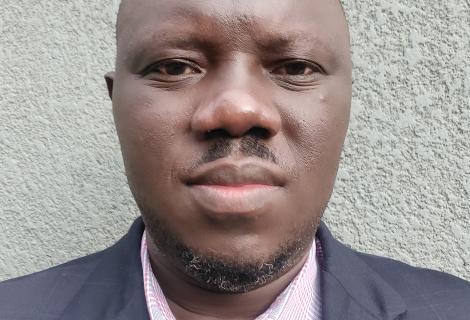Why Ugandan Parliament is on a Political Suicide Mission

By Xavier Ejoyi
Historically, members of Parliament (MPs) carry the title ‘honourable’ because they are expected to conduct themselves with integrity, civility, and decorum befitting of a legislator. Ugandan citizens have legitimate expectations that a lawmaker will be law-abiding, using their delegated authority to act in the best interest of the public. As an oversight body, citizen’s expect Parliament to be a standard bearer of financial, political, and moral accountability, as well as a diligent appropriator of public resources.
However, revelations by the ongoing #UgandaParliamentaryExhibition, the citizen-led online anticorruption activism, tell of a house that is far from honourable. Are there any honourables left? The allegations of sleaze in the Ugandan Parliament, complete a long list of weakened public institutions feeding like leeches on our nascent democracy. The irregular financial facilitation to Members of Parliament that started as a reluctant acquiescence to advances by the Executive has now graduated into a fully-fledged betrayal of public trust, self-defeating of the core function of Parliament. The conduct of Parliament as exposed is like that of a person caught on a suicide mission, either they voluntarily abandon the mission, or they are placed on suicide watch.
At the heart of this decay is the erosion of the principle of separation of powers, a necessary safety valve for any democratic government. The fulcrum holding in check excesses of the three branches of government – Executive, Legislature and Judiciary and maintaining an optimal balance in public interest, now faces an existential threat. How can Parliament play its oversight role over the Executive and Judiciary when MPs are indulged in self-serving schemes of awarding themselves questionable financial benefits?
In addition to the controversial 500M shillings “service awards”, it is absurd to learn that Parliament increased per diem rates for MPs and leadership of Parliament by over 300% above rates published by the Ministry of Public Service. What can justify the revision of daily foreign travel per diems from $900 to $4,000 other than greed, extravagance, and insatiable desire for opulent lifestyles at taxpayers’ cost? For context, most of the developed countries contributing over 40% of Uganda’s annual budget are so modest in overseas travel that their senior government officials travel economy class with daily per diem rates a fraction of what their Ugandan counterparts appropriate themselves. Imagine that- Uganda, a poor, donor dependant country has its MPs earning much more than MPs in donor countries – who ironically approve aid budgets to Uganda!
What is even disheartening is that poverty and inequality levels in Uganda continue to increase with northern and eastern Uganda most affected. As politicians eat the fatty meat of Uganda, the ordinary Ugandan continues to endure dysfunctional public services. How MPs, many of whom come from humble, even obscure backgrounds have transformed into self-seeking conspirators against public goods and services still beggars belief.
Should Parliament appropriate hundreds of billions of shillings in donations by its leaders and the Executive, tens of billions on corporate social responsibility (CSR), arbitrary benefits, awards, and facilitation than prioritizing appropriation for fixing dysfunctional public services? Is it political laziness, misplaced incentives, or conspiracy of silence that MPs find it convenient to appropriate random cash handouts at the discretion of few political leaders than hold the Executive accountable for quality public service delivery? How did we get here?
The moral decay in our society driven by impunity of leaders and citizens’ complacency has reached endemic levels. Permissive social norms embolden the corrupt by trivializing graft, then condoning, and eventually justifying ill-gotten wealth. For as long as there is a culture of glorifying unexplained wealth, and opulence beyond one’s known means, we are morally guilty of corruption.
However, a permissive society does not absolve political leaders of impropriety and moral decay. Instead, the essence of leadership is about taking responsibility, making a difference by setting the tone at the top rather than casually justifying their actions, attributing them to “pressure from constituents” unless they have a literal understanding of their representation role. You cannot claim to be a leader, and stoop too low to indulge in moral decadence simply because of “pressure from your constituents”. I have not seen a tail wagging a dog.
If there is any lesson for Ugandan citizens to learn, it is that tackling political corruption requires looking beyond guided spaces, captured institutions, and bureaucratic processes. Citizens should reclaim their space in the governance of the country, especially in fighting corruption – now an existential threat for our generation, our future, and democracy. We do not have the luxury of “going about our business” while giving the looters a blank cheque. If Parliament insists on a suicide mission, we cannot be innocent bystanders waiting to endure more costs in its burial. We should place it on political suicide watch.
Xavier Ejoyi is the Country Director of ActionAid International Uganda


